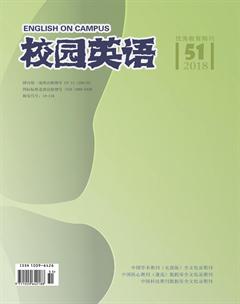To what extent has the emergence of English as a Lingua Franca diminished the need for translation
1. Introduction
Although translation has played a prominent role in human life, it is argued that the emergence of English as a Lingua Franca(ELF) has weakened translations status. In this essay, I will argue that ELF has diminished the need for translation in terms of human communication, yet it is no threat for translation in some other aspects such as written literature. In order to demonstrate this argument, I will first analyse the spread of ELF. Then I will examine the benefits of ELF as a communication tool and the innate weaknesses of translation. Finally, the need for translation in certain areas will be looked at.
2. The spread of ELF
In defining ELF, House (2003) quoted: it is a language showing full linguistic and functional range (Kachru, 1997) and serving as a ‘contact language between persons who share neither a common native tongue nor a common national culture, and for whom English is the chosen foreign language of communication (Firth, 1996).
Due to the military might, political imperialism and economic supremacy of Britain and America in history and at present, English, as the language behind these two countries, has become a global language or a lingua franca. According to Pennycook (1998, p.148) who excerpted from an editorial in The Sunday Times (UK), two billion people around the globe chose English as their second language. Combined with 350 million native speakers in the United States, Britain and the Commonwealth, the number is huge. He (1998, p.148) also noticed from an article in U.S News & World Report that people from Argentina, German and Japan talked with foreigners, published their findings and negotiated business with foreign entrepreneurs in English. It seems that English is inevitable and unstoppable as a vehicular language, and translation is therefore unnecessary among people who can communicate well with each other in English.
3. The benefits of ELF and limitations of translation
In addition, as a lingua franca, English has several advantages over translation. First of all, ELF can function much better in linguistically mixed occasions and communities than translation. For example, in communities such as Africa and South-east Asia where many languages are in contact (Crystal, 2003, p.11), translation between languages is very troublesome and sometimes even not practical. In contrast, using ELF can be much more convenient. Secondly,as an instrument for communication, ELF in its nature is more prompt than translation. Take EUs translation bureau as an example. In order to embody the notion of equality, the translation bureau routinely translated official papers into different languages of member countries. In fact, important documents are quickly viewed in its working language or lingua franca, English, leaving the translation versions intact. This phenomenon is simply because the English version always comes before the translation and ‘by the time the translation are ready, the new information is old information (House, 2003). Therefore, the value of translation is merely a of symbol of formal equality without practical use. The enormous translation work also means huge manpower and translation machines, which costs a large amount of money, while with the grasp of English, EU officials do not need to spend even a penny on the comprehension of the documents.
4. The necessity of translation
However, ELF does not necessarily replace translation as they can be employed in different areas and for different purposes. For instance, in the appreciation of written literature of an author from a certain country, it is necessary to translate the texts from source language into different target languages so that people from different countries can understand and appreciate the great work. Yet, here ELF can not exert its influence if the source text is not written in English. Even when the original text is in English, normal readers may still not completely understand the source text due to the great differences in the two languages grammar and syntax as well as cultures behind the languages and will rely on the experienced translators to produce adequate and functionally equivalent target texts. In this regard, ELF is no substitution for translation.
5. Conclusion
Thus, it can be concluded that the emergence of English as a Lingua Franca shook the position of translation in the aspect of global communication, while translation still plays a key role in certain areas. With the combination of the two instruments, the international communication and interaction can be better realised and facilitated.
So far, the paper has focused on the popularity and benefits of English as a Lingua Franca as well as the drawbacks and necessity of translation. Yet, there are still some limitations existing in the essay. The sources are outdated and limited to some extent, and they are mainly written by English native speakers. Moreover, the comparison of the cost of English as a Lingua Franca and that of translation is not included in the essay which is also hard to calculate. Future research may focus on this aspect.
【作者簡介】谷巍,北京外国语大学国际教育集团。

